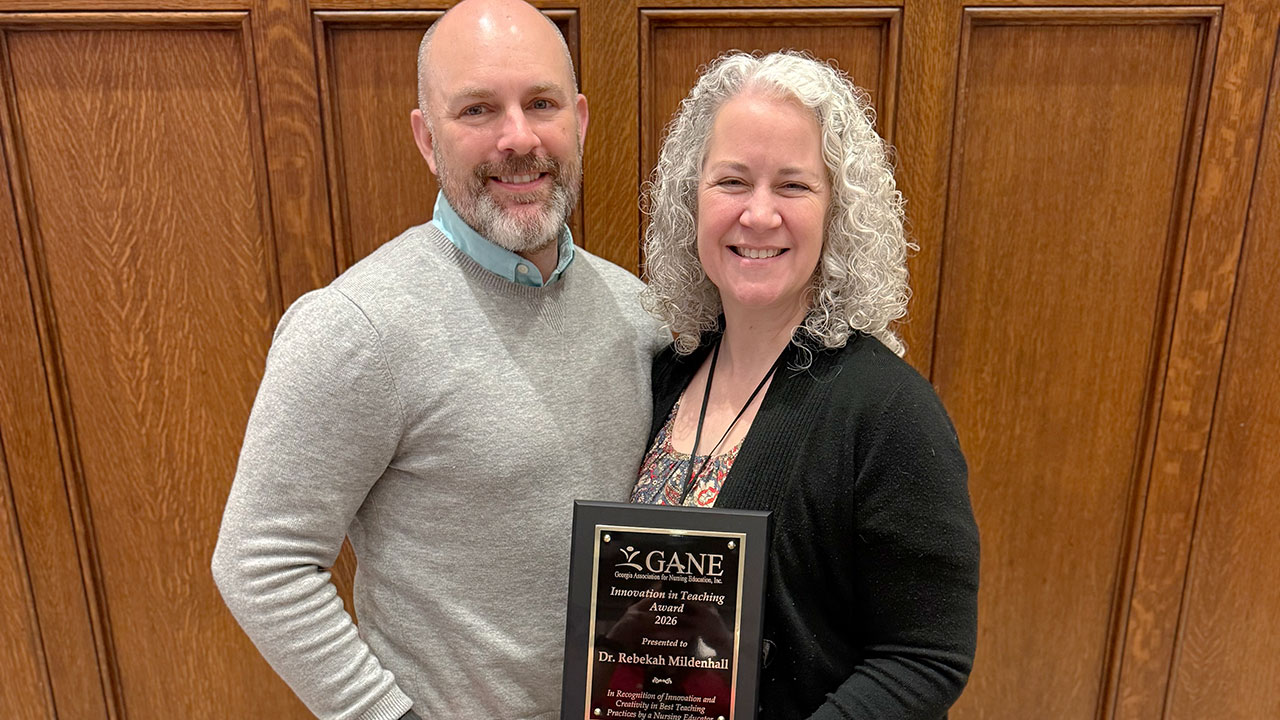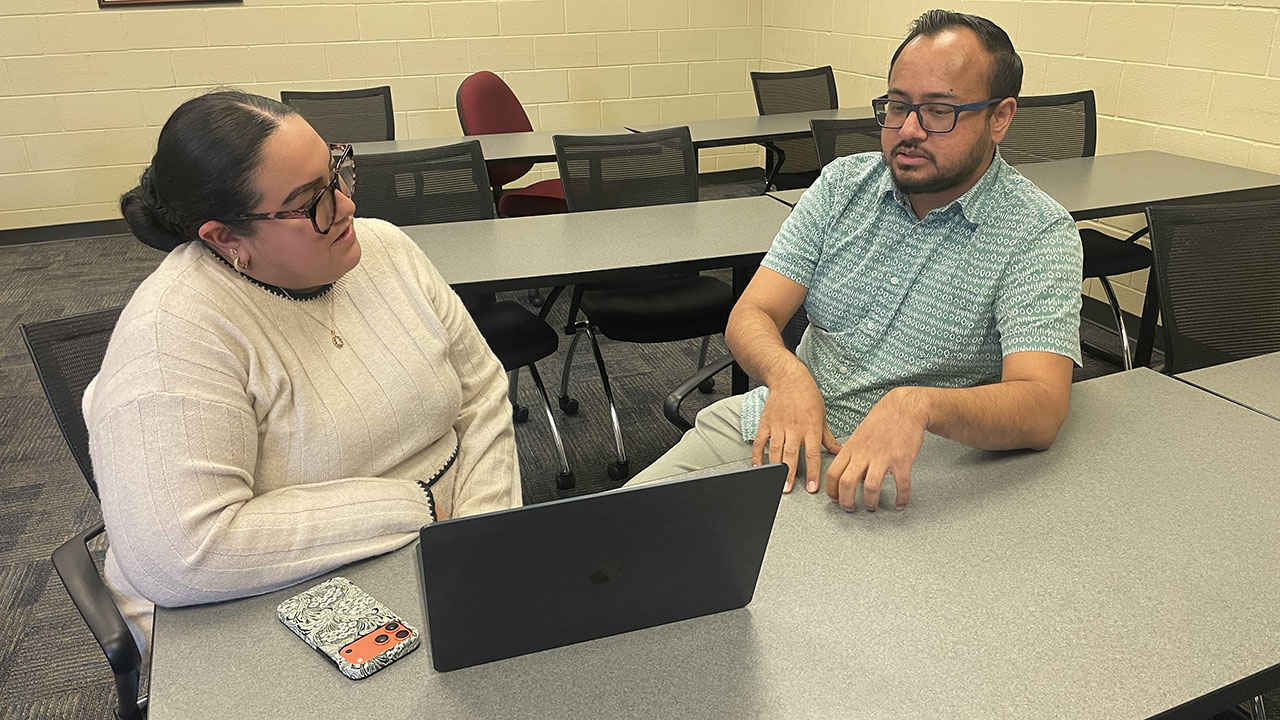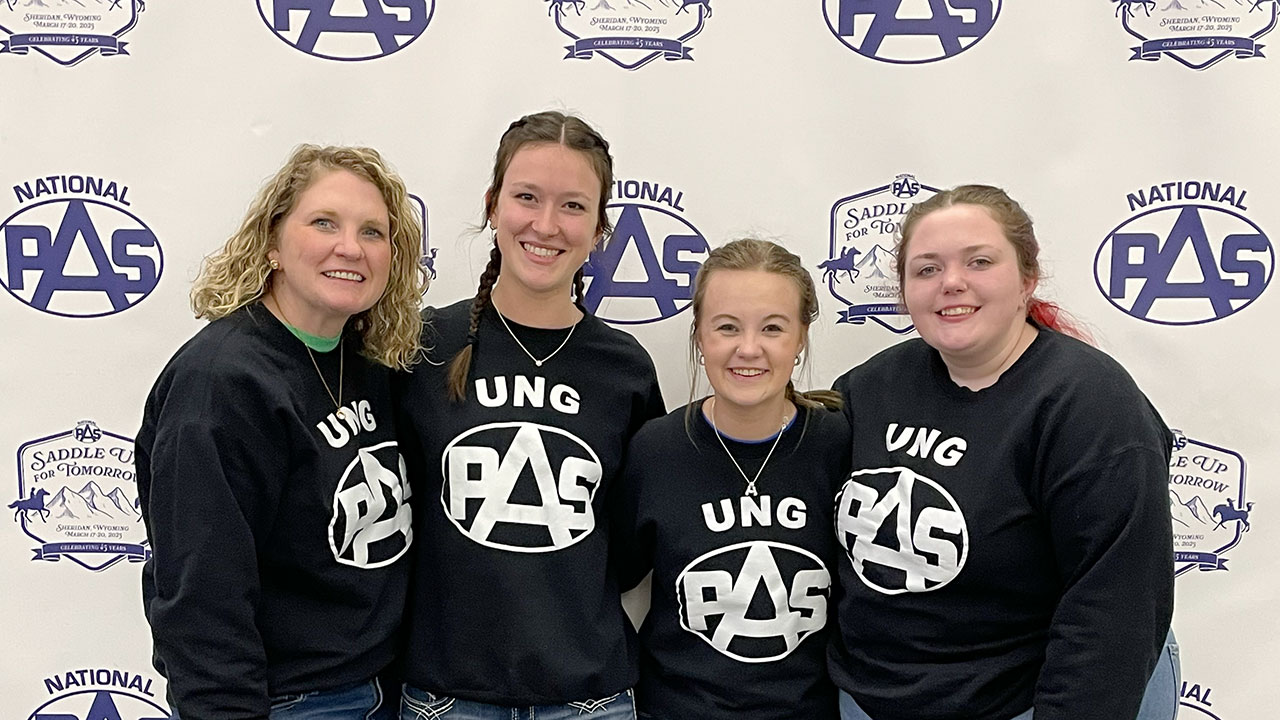UNG uses grant to build workforce skills

The University of North Georgia (UNG) spent the past three years helping students in Dawson, Fannin, Forsyth, Gilmer, Hall, and Lumpkin counties gain employability skills through projects funded by a $1.45 million U.S. Department of Labor grant. UNG provided 4,630 total services through the grant.
These efforts align with Gov. Brian Kemp's emphasis on Georgia's universities and technical colleges partnering with K-12 schools for workforce development, which Kemp announced in early October at the inaugural Workforce Georgia summit.
"It's not that students lack employability skills," Bobbi Larson, executive director of economic development and community engagement and principal investigator for the grant, said. "They lack knowledge about different industries and jobs and the confidence to apply these skills. The opportunities provided through the Workforce Opportunities for Rural Communities (WORC) grant helped build that confidence and context as to how these skills were applicable in a work setting."
The final major effort funded by the WORC grant was a collaboration with the Network for Teaching Entrepreneurship (NFTE) to bring a NFTE World Series of Innovation event to UNG's Dahlonega Campus on Sept. 19.
Gainesville High School students heard from keynote speaker Rahfeal Gordon, international award-winning entrepreneur and author, and had a chance to practice their entrepreneurial abilities in a competition judged by UNG President Michael Shannon, faculty member Dr. Mariangela Vecchiarini-Piazza, Gordon, and Gainesville City School System Superintendent Jeremy Williams.
"The opportunity UNG and NFTE provided our students was timely and enhanced critical thinking skills. Entrepreneurship continues to grow, and our students were able to have first-hand experience in developing ideas while being supported by coaches," Williams said. "We are appreciative of the springboard this event will serve as for future ideas and collaboration."
Katherine Turcios Garcia, a Gainesville High student, enjoyed learning from the speakers at the NFTE event at UNG.
It's not that students lack employability skills. They lack knowledge about different industries and jobs and the confidence to apply these skills. The opportunities provided through the Workforce Opportunities for Rural Communities grant helped build that confidence and context as to how these skills were applicable in a work setting.
Bobbi Larson
UNG executive director of economic development and community engagement
"I had an amazing experience at UNG, and I just wanted to thank everyone who made it possible. So many people take this for granted, and it's a really big opportunity," Turcios Garcia said. "So many people talked about how to be a successful entrepreneur and succeed in life in general."
Through the WORC grant, UNG helped Gilmer High School launch the Lead Gilmer program for students to build their employability toolkit.
Laney Hensley, a Gilmer High graduate from Ellijay, Georgia, is a freshman at UNG who plans to pursue a Bachelor of Science in Nursing (BSN). Lead Gilmer played a role in her enrolling at UNG because of the experience it gave her.
"We were all leaders, and we had to learn to work together," Hensley said. "We had to learn how to work well with others."
Kent Sanford, executive director of the Greater Gilmer Joint Development Authority, said the Lead Gilmer program has made a major impact on students.
"Our Lead Gilmer students are taking on leadership roles not only at Gilmer High, but also in the community. Several have found employment in career paths they previously did not even realize existed," Sanford said. "Without UNG's foresight, we would have never been able to develop a program like this."
Carla Foley, CEO of Gilmer College & Career Academy, echoed that sentiment.
"The grant provided the framework and resources for us to be able to build the Lead Gilmer program," Foley said. "The idea of getting students out into the community to learn about the businesses, industries and career opportunities available, along with networking with community leaders, provided a foundation for a great leadership development program."
Mikella Rutter, Work-Based Learning and Youth Apprenticeship coordinator for Gilmer High, also appreciates the difference the program is making.
"Lead Gilmer is about empowering our students to become active and engaged citizens in Gilmer County. By creating a bridge between education and the community, we hope to provide them with the tools to make a real difference," Rutter said. "We truly believe this program is preparing them to take the reins of leadership, succeed in the job market, and make meaningful contributions to their local community. It's a testament to the power of collaboration between educational institutions and local communities."
The WORC grant is one of many ways UNG has partnered with and continues to support K-12 schools throughout the north Georgia region.




